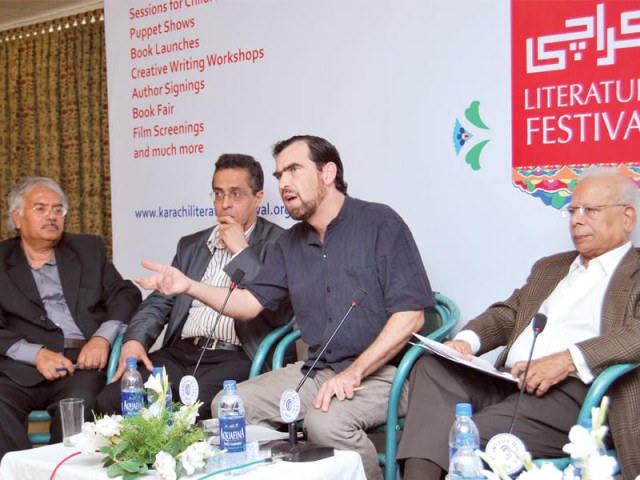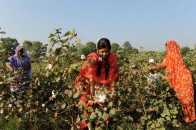Tailored changes: Revolution is good; results, maybe not
Scholars yearn for ‘natural conclusion’ to Arab Spring – secular democracy.

Tailored changes: Revolution is good; results, maybe not
But during “The Arab Spring” talk at the Karachi Literature Festival, there was no expression of kudos for the valorous protesters, nor any musings about the romantic possibility of a Pakistani spring. In fact, the discussion focused on hard facts of the political upheaval that has shaken the Middle East and North Africa in recent times.
Dean of Institute of Business Administration Dr. Ishrat Husain — the moderator for the session — began by pinpointing the harsh truth of a much-celebrated change. “In Egypt, the economic growth rate was 6 to 7%, but since the revolution, it has slid to 1to 2%,” he said. “Tourism is in decline, investment is not taking place. This is the price one pays for dislodging an unrepresentative government.”
Yet, according to British-Syrian scholar Robin Yassin-Kassab, the popular resistance in the Middle East was inevitable. “It’s good when history moves,” he asserted.
Subsequently, the speakers at the session— all foreigners— did not just highlight the significant variations characterising the political transformation of Arab countries, but also expressed apprehensions about the protracted revolts and nature of regime change.
“The young people in Egypt do not feel represented by the election results, in which Islamist parties— the Muslim Brotherhood and the Salafists— have been largely successful,” said German scholar Stefan Weidner. “There appears to be a secret coalition between the military and the Islamists in Egypt, which are both conservative in nature and do not want to encourage growth of civil society.”
“But the revolutionaries in Egypt are very active and conservative rule will not make them disappear from politics,” he added with optimism.
However, this note of sanguinity was short-lived. When Yassin-Kassab opined about Syria, which is still caught in the throes of popular resistance, the collapse of the Assad regime appeared quasi-impossible.
Yassin-Kassab, highlighted how ‘divide and rule’ was now the Syrian regime’s mantra to crush the popular resistance.
“The regime has turned the revolt into sectarian conflict. They are arming Alawites from villages to rape, kill and burn Sunni cities.”
And all the speakers were daunted by the possibility of Islamist forces filling the power vacuum in the Arab world.
“Secularism is the only way to be politically free,” claimed French-Algerian intellectual Anouar Benmalek. Implicit in the opinions of the speakers, was a deep ideological yearning for representative rule in the Arab world, born out of disorder and bloodshed, to follow an orderly trajectory of liberal, secular democracy.
It seems like those who analysed the onset of Spring from afar, want it to exclusively bear fruits well-suited to their tastes.
Published in The Express Tribune, February 13th, 2012.



















COMMENTS
Comments are moderated and generally will be posted if they are on-topic and not abusive.
For more information, please see our Comments FAQ